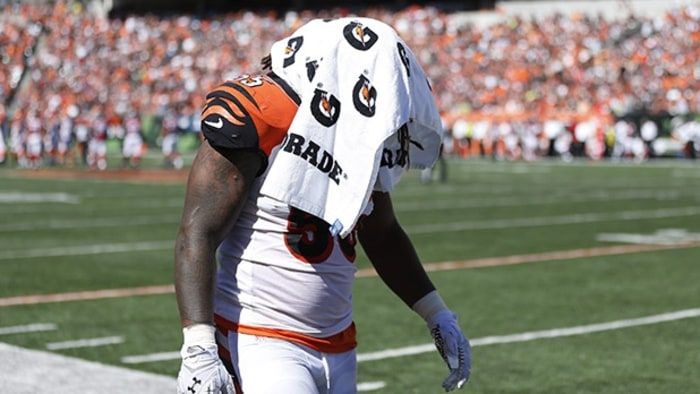The NFL Says Football Leads to Brain Damage: Now What?
An NFL medical official said this week there’s a connection between football and brain damage. You don’t say? Doesn’t everybody know that already? Everyone knew that. Except for the NFL.
Dr. Mitch Berger, a member of the league’s Head, Neck, and Spine Committee, denied there was a link as recently as the Super Bowl. The NFL never previously acknowledged the medical research that shows a direct link between pro-level head-smacking and neurodegenerative diseases like chronic traumatic encephalopathy (CTE). Until now.
RELATED: What Would It Take You To Stop Watching Football?
Jeff Miller, the NFL Senior Vice President for Health and Safety, admitted Monday that there is certainly a link, at a roundtable hosted by the U.S. House of Representatives’ Committee on Energy and Commerce. Miller cited the work done by Boston University neuropathologist Dr. Ann McKee, who has studied CTE the last five years and found a high percentage of dead football players with it.
Six years ago, the NFL admitted that concussions lead to long-term health problems. But concussions are different. Multiple concussions and sustained head trauma leads to CTE, a progressive, degenerative brain disease with symptoms that include memory loss, dementia, and depression. Hall of Famers Junior Seau, Ken Stabler, and Mike Webster were all diagnosed with it after they died.
“I unequivocally think there's a link between playing football and CTE,” McKee said. “We’ve seen it in 90 out of 94 NFL players whose brains we've examined, we’ve found it in 45 out of 55 college players, and six out of 26 high school players." Undeniably, it's not a rare thing, and McKee warns we're going to be surprised by how prevalent it is.
RELATED: The NFL's Secret Drug Problem
The impact of Miller’s statement could be massive on ongoing — and future — lawsuits against the NFL, which had never made the connection between the game and CTE before. The league is in the midst of a $1 billion concussion settlement.
In 1964, the Surgeon General announced that smoking cigarettes is bad for your health for the first time, and that led to warning labels on packs and the end of cigarette ads on television. Miller’s admission isn’t going to put warning labels on NFL helmets or ban kids from watching the Super Bowl, but acknowledging the research that’s been out there is a significant milestone.
The NFL was the last to admit it has a problem with CTE. But now it acknowledges its game is dangerous. So now what is the league going to do about it? Or, as Miller said, “Where do we go from here with that information?”
